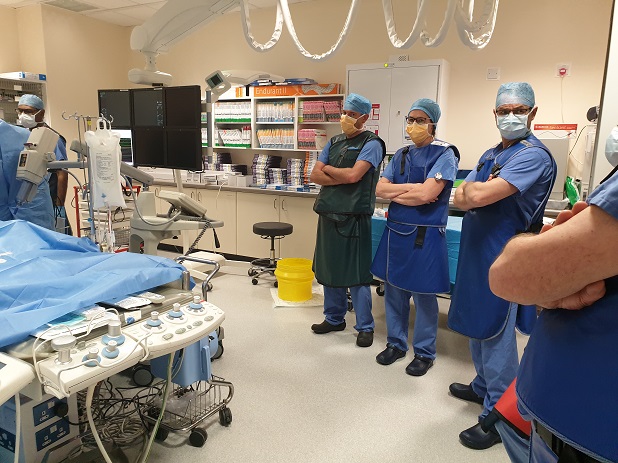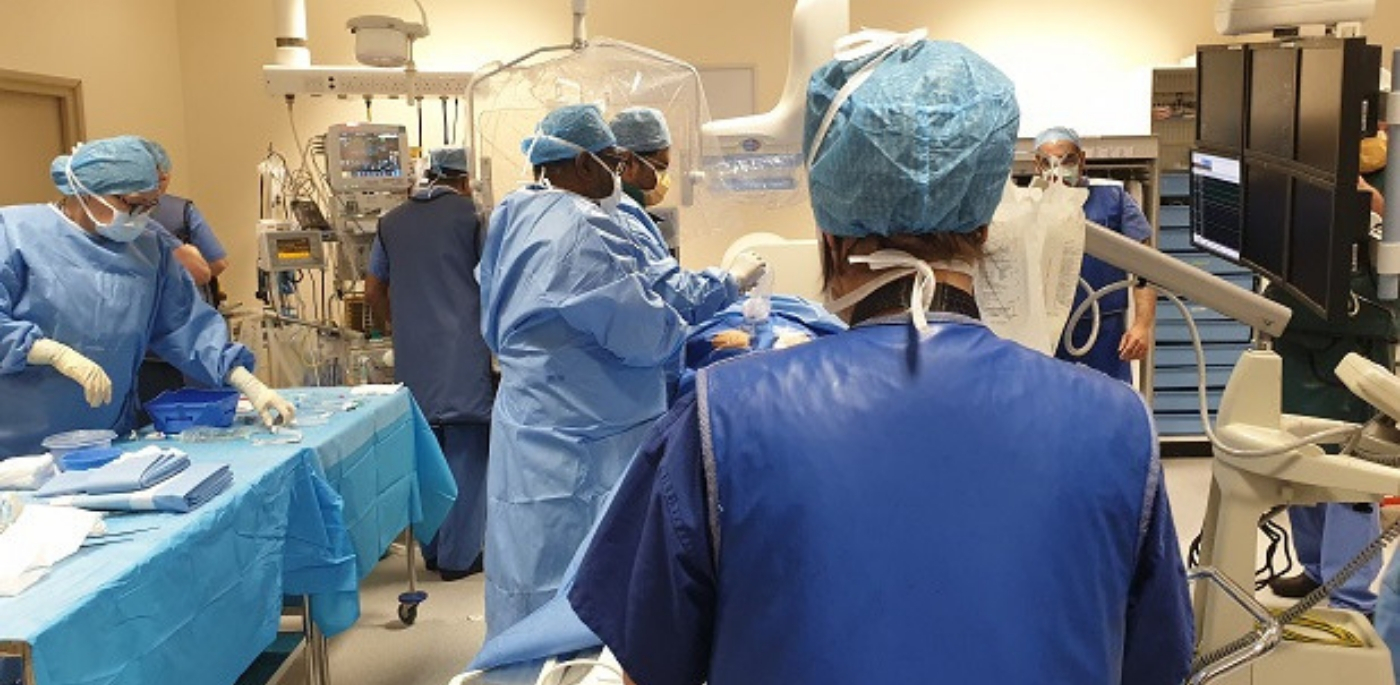A man has become our first patient to undergo a new heart procedure which saves people having to travel across Yorkshire for treatment.
David Morris underwent Transcatheter Aortic Valve Implantation (TAVI) after Hull University Teaching Hospitals NHS Trust was commissioned to set up the new service by NHS England.
Performed at Castle Hill Hospital, heart patients in Hull, the East Riding, North Yorkshire and Northern Lincolnshire no longer have to travel to Sheffield or Leeds for treatment.
Mr Morris, now back home and recovering well, said: “It’s been fantastic and I am now able to walk into town again.
“I am 86 and my wife’s main carer so travelling to Leeds or Sheffield would have been difficult for us.
“Having it done here has made a big difference to us and meant my wife was able to visit me every day.”
Some patients with heart disease are not considered fit or well enough for major heart surgery if they require valve replacements. Instead, they are often suitable for TAVI, which puts less strain on the body as the heart does not need to be stopped and placed on bypass.

During the procedure, a catheter with a balloon on the tip is inserted into an artery in either the upper leg or the chest which is then passed into the heart and positioned near the opening of the aortic value. The balloon is then inflated, creating space for a new tissue value which is put in position and expanded.
Mr Morris started experiencing chest pain while walking around Cottingham and he was referred to the Centre for Cardiology and Cardiothoracic Surgery at Castle Hill Hospital by his GP.
Tests showed his heart valve was restricted, causing him to experience chest pain and extreme tiredness, and Consultant Interventional Cardiologist Dr Raj Chelliah, who leads the TAVI service, realised Mr Morris would be a suitable patient for the treatment.
Mr Morris underwent TAVI under general anaesthetic in March and stayed in hospital for six days before he was well enough to go home.
Dr Chelliah said: “TAVI is an excellent procedure for some patients who may not be suitable for major heart surgery. It is less invasive, meaning patients can spend less time in hospital and can have a far quicker recovery time.
“For patients like Mr Morris, it can be a far better option for them as not only can they have the surgery right here, much closer to their homes and their families, it also takes less toll on their bodies which means they are able to recover more quickly and get back on their feet.
“We’re really pleased with Mr Morris’s progress since his procedure and look forward to offering this treatment to more patients that are suitable across our region.”

